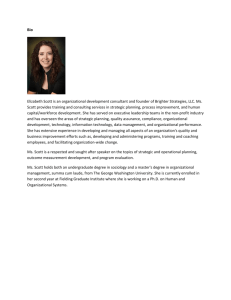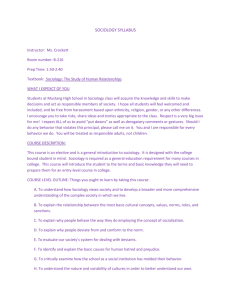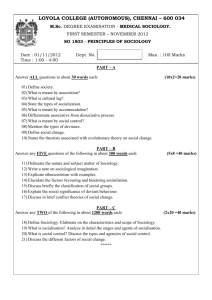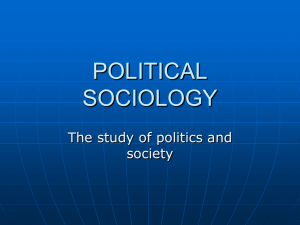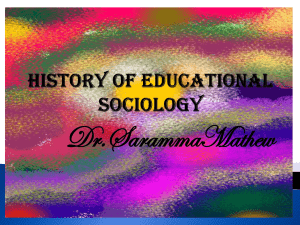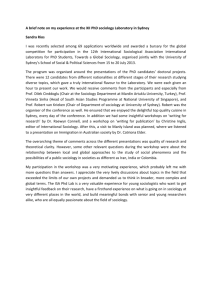Word - TASA
advertisement
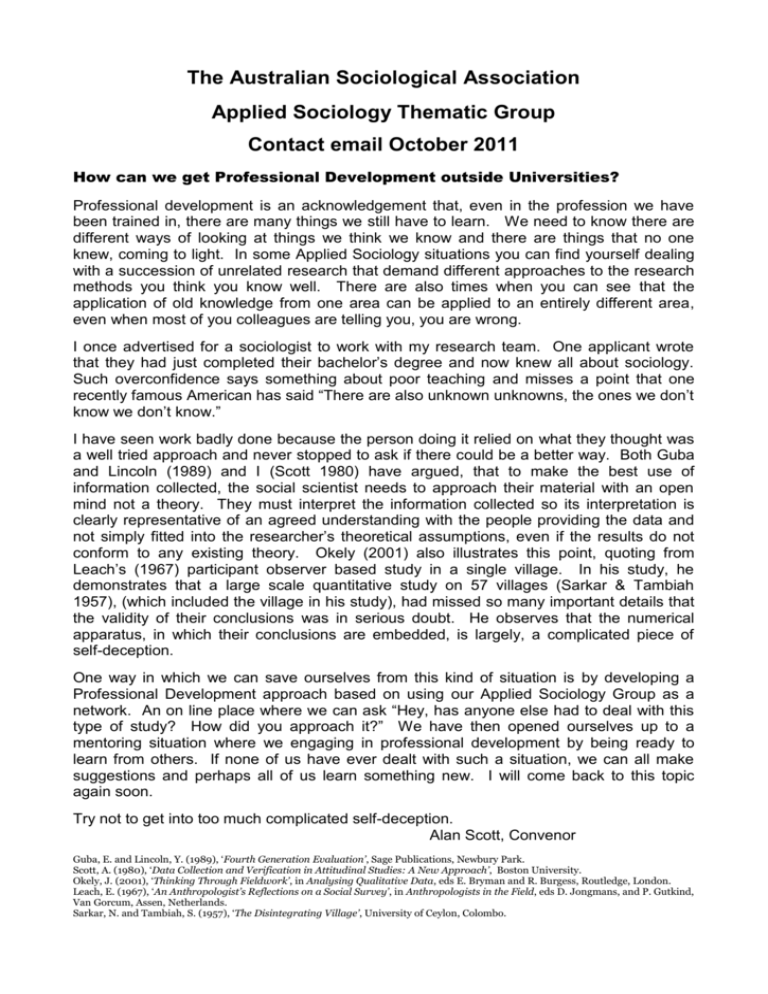
The Australian Sociological Association Applied Sociology Thematic Group Contact email October 2011 How can we get Professional Development outside Universities? Professional development is an acknowledgement that, even in the profession we have been trained in, there are many things we still have to learn. We need to know there are different ways of looking at things we think we know and there are things that no one knew, coming to light. In some Applied Sociology situations you can find yourself dealing with a succession of unrelated research that demand different approaches to the research methods you think you know well. There are also times when you can see that the application of old knowledge from one area can be applied to an entirely different area, even when most of you colleagues are telling you, you are wrong. I once advertised for a sociologist to work with my research team. One applicant wrote that they had just completed their bachelor’s degree and now knew all about sociology. Such overconfidence says something about poor teaching and misses a point that one recently famous American has said “There are also unknown unknowns, the ones we don’t know we don’t know.” I have seen work badly done because the person doing it relied on what they thought was a well tried approach and never stopped to ask if there could be a better way. Both Guba and Lincoln (1989) and I (Scott 1980) have argued, that to make the best use of information collected, the social scientist needs to approach their material with an open mind not a theory. They must interpret the information collected so its interpretation is clearly representative of an agreed understanding with the people providing the data and not simply fitted into the researcher’s theoretical assumptions, even if the results do not conform to any existing theory. Okely (2001) also illustrates this point, quoting from Leach’s (1967) participant observer based study in a single village. In his study, he demonstrates that a large scale quantitative study on 57 villages (Sarkar & Tambiah 1957), (which included the village in his study), had missed so many important details that the validity of their conclusions was in serious doubt. He observes that the numerical apparatus, in which their conclusions are embedded, is largely, a complicated piece of self-deception. One way in which we can save ourselves from this kind of situation is by developing a Professional Development approach based on using our Applied Sociology Group as a network. An on line place where we can ask “Hey, has anyone else had to deal with this type of study? How did you approach it?” We have then opened ourselves up to a mentoring situation where we engaging in professional development by being ready to learn from others. If none of us have ever dealt with such a situation, we can all make suggestions and perhaps all of us learn something new. I will come back to this topic again soon. Try not to get into too much complicated self-deception. Alan Scott, Convenor Guba, E. and Lincoln, Y. (1989), ‘Fourth Generation Evaluation’, Sage Publications, Newbury Park. Scott, A. (1980), ‘Data Collection and Verification in Attitudinal Studies: A New Approach’, Boston University. Okely, J. (2001), ‘Thinking Through Fieldwork’, in Analysing Qualitative Data, eds E. Bryman and R. Burgess, Routledge, London. Leach, E. (1967), ‘An Anthropologist’s Reflections on a Social Survey’, in Anthropologists in the Field, eds D. Jongmans, and P. Gutkind, Van Gorcum, Assen, Netherlands. Sarkar, N. and Tambiah, S. (1957), ‘The Disintegrating Village’, University of Ceylon, Colombo.
